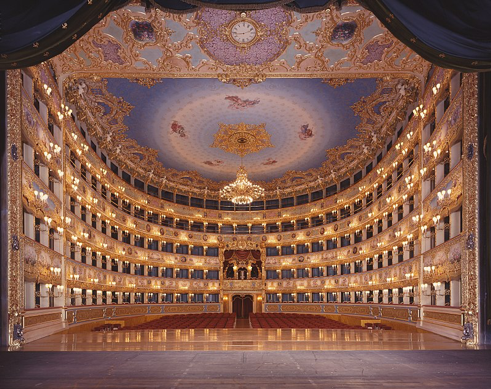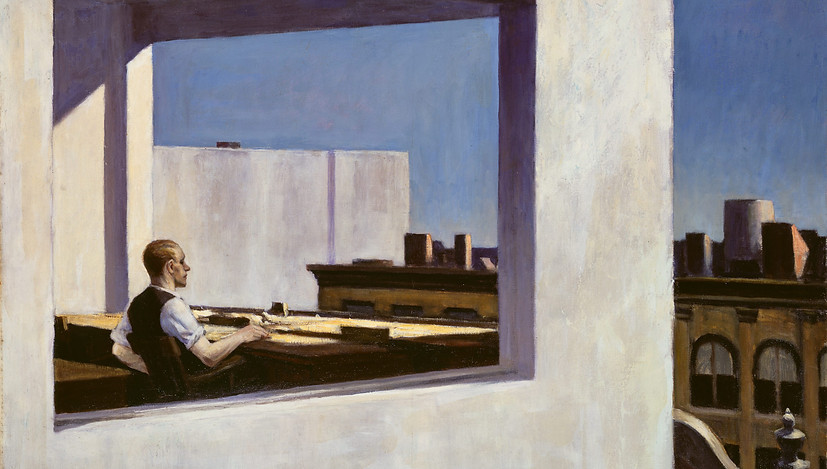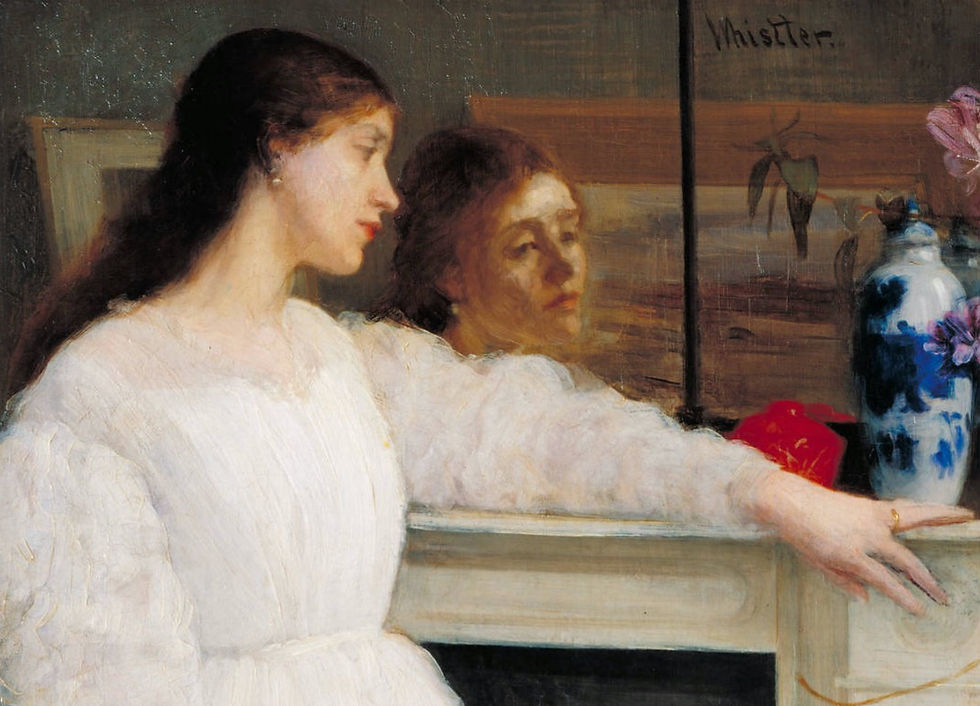La... "Annoiata" | The... "Bored" woman
- ellemmelle

- 31 mar 2020
- Tempo di lettura: 9 min
Aggiornamento: 5 apr 2020
English version below
Letteratura e musica
Testo di Laura Tinti e traduzione di Lisa Bragantini
Alla parola “letteratura”, tante sono le cose che ci vengono in mente: romanzi, racconti, poesie, biografie, testi teatrali, diari… ma un genere letterario che raramente viene studiato a scuola, approfondito o analizzato è il melodramma, il “magico” genere letterario che riesce ad unire parole, musica e recitazione. Perché non spendere del tempo in questi giorni di isolamento per saperne di più?
Il melodramma, conosciuto oggi anche con il nome di “opera lirica”, è un genere letterario/teatrale nato tra il Cinquecento e il Seicento in Italia, a Firenze. Un gruppo di intellettuali e artisti si riuniva infatti nell’abitazione del conte Giovanni Bardi (da cui il gruppo prende il nome di “Camerata de’ Bardi”) per discutere di arte, musica e letteratura. Lo scopo era quello di dar vita a una nuova forma d’arte, che fu definita “recitar cantando”, secondo il modello del teatro greco. L’idea di fondo era che la musica dovesse accompagnare il testo teatrale, cosicché il risultato finale potesse trasmettere maggiore intensità. Nel corso del Seicento e del Settecento l’opera si sviluppa e si diffonde in tutta Europa, e nell’Ottocento raggiunge l’apice del suo splendore, con figure come Gioachino Rossini, Vincenzo Bellini, Gaetano Donizetti, Giuseppe Verdi, Giacomo Puccini, Richard Wagner, Georges Bizet e tanti altri.
Colui che può essere riconosciuto come lo “scrittore” dell’opera ha il nome di “librettista”, in quanto il suo compito è quello di scrivere i dialoghi tra i personaggi e le didascalie che descrivono epoca e luogo in cui la vicenda è ambientata. Sulla base del libretto il compositore mette quindi in musica i versi e scrive gli spariti per l’orchestra.

Gran Teatro La Fenice di Venezia
La maggior parte delle opere liriche è basata su romanzi o altri testi letterari, per questo vorrei parlarvi del romanzo “La Dama delle Camelie” di Alexandre Dumas figlio e dell’opera che Verdi ne trasse, “La Traviata”.
La Dama delle Camelie
Il titolo del romanzo si riferisce alla caratteristica della protagonista di portare con sé delle camelie durante le uscite pubbliche, rosse per cinque giorni al mese e bianche per i restanti venticinque (probabilmente, essendo ella una cortigiana, il colore bianco rappresentava la disponibilità per i suoi amanti, e il colore rosso la non-disponibilità).
La storia inizia quando il narratore, la cui identità è sconosciuta, viene a conoscenza di un'asta organizzata in Rue d'Antin 9 per la vendita di mobili e oggetti preziosi di una persona recentemente deceduta. Egli decide quindi di visitare la casa e scopre che il nome della donna è Marguerite Gautier. Egli ricorda quindi di averla conosciuta e, attratto da un libro messo all'asta (Manon Lescaut), e ancor più da qualcosa che è stato scritto in prima pagina, acquista il volume per cento franchi. Arrivato a casa sua egli legge la dedica: "Manon a Marguerite. Umiltà ”, firmata da un certo Armand Duval. Pochi giorni dopo, lo stesso Armand Duval giunge in quella casa, sopraffatto dalla notizia della morte di Marguerite, e chiede in lacrime di avere il libro. L'uomo, vedendo la disperazione di Duval, accetta, e Armand decide quindi di raccontargli la loro storia: la donna era una cortigiana molto famosa a Parigi, di cui egli si era innamorato dal primo giorno in cui l'aveva vista. I due erano poi diventati amici, amanti e infine si erano innamorati. Avevano poi deciso di andare a vivere in una casa di campagna a Bougival, ma la loro relazione era minacciata dal padre di Armand, che temeva che questo rapporto avesse danneggiato la reputazione di suo figlio e di tutta la sua famiglia. Fino alla morte di Marguerite, Armand sarà quindi convinto di essere stato tradito con un altro amante e che la donna se ne fosse andata volontariamente. Qualche anno dopo, gravemente ammalata, Marguerite avrà appena il tempo di vederlo per l’ultima volta prima di spegnersi.
La Traviata
Nell'opera la protagonista si chiama Violetta Valéry, una cortigiana dell'alta società parigina, innamorata del giovane Alfredo Germont, che la ama a sua volta. Il loro legame crea uno scandalo nel mondo dell'ipocrita borghesia dell'epoca, infatti il padre di Alfredo, Giorgio Germont, interviene per interrompere la relazione. Violetta torna quindi alla sua vita e Alfredo la insulta per averlo abbandonato. Infine, Violetta muore di tubercolosi dopo aver visto Alfredo un'ultima volta.

La morte di Violetta
Il risultato finale dell'opera è stato considerato scandaloso all'epoca: Verdi mise in scena una vicenda contemporanea, che non aveva luogo in luoghi esotici o secoli passati: nei personaggi de "La Traviata" il pubblico vedeva riflesse le proprie miserie.
Di seguito alcuni brani tratti dall’opera da godervi in questi giorni.
1) UN DI’ FELICE, ETEREA (Alfredo si dichiara a Violetta)
ALFREDO:
Un dì felice, eterea, mi balenaste innante,
e da quel dì, tremante, vissi d’ignoto amor. Di quell’amor ch’è palpito dell’universo intero, misterioso, altero, croce e delizia al cor.
VIOLETTA:
ah, se ciò è ver, fuggitemi, solo amistade io v’offro: amar non so, né soffro un così eroico amor. Io sono franca, ingenua; altra cercar dovete; non arduo troverete dimenticarmi allor.
ALFREDO:
Amore, misterioso, misterioso, altero
Croce, croce e delizia
Delizia al cor.
VIOLETTA:
Dimenticarmi allor, dimenticarmi allor…
2) È STRANO / AH, FORS’ È LUI CHE L’ANIMA/ SEMPRE LIBERA
(Violetta riflette sulle parole dell’amato e si rende conto di esserne rimasta colpita).
È strano! È strano!
in core scolpiti ho quegli accenti!
Sarìa per me sventura un serio amore?
Che risolvi, o turbata anima mia?
Null'uomo ancora t'accendeva.
Oh, gioia
ch'io non conobbi
esser amata amando!
E sdegnarla poss'io
per l'aride follie dei viver mio?
Ah, fors'è lui che l'anima
Solinga ne' tumulti
Godea sovente pingere
De' suoi colori occulti!
Lui che modesto e vigile
All'egre soglie ascese,
E nuova febbre accese,
Destandomi all'amor.
A quell'amor ch'è palpito
Dell'universo intero,
Misterioso, altero,
Croce e delizia al cor.
A me fanciulla, un candido
E trepido desire
Questi effigiò dolcissimo
Signor dell'avvenire,
Quando ne' cieli il raggio
Di sua beltà vedea,
E tutta me pascea
Di quel divino error.
Sentìa che amore è palpito
Dell'universo intero,
Misterioso, altero,
Croce e delizia al cor!
Resta concentrata un istante, poi dice
Follie! Delirio vano è questo!
Povera donna, sola, abbandonata
in questo popoloso deserto
che appellano Parigi
che spero or'più?
Che far degg'io?
Gioire!
Di voluttà ne' vortici perir!
Gioir'!
Sempre libera degg'io
folleggiare di gioia in gioia
vo' che scorra il viver mio
pei sentieri del piacer
nasca il giorno, o il giorno muoia
sempre lieta ne' ritrovi
a diletti sempre nuovi
dee volare il mio pensier
ALFREDO FUORI SCENA
(… di quell’amor ch’è parpito
di quell’amor, amore è palpito
Dell'universo intero,
Misterioso, altero,
Croce e delizia al cor!)
amore….
Sempre libera degg'io
folleggiare di gioia in gioia
vo' che scorra il viver mio
pei sentieri del piacer
nasca il giorno, o il giorno muoia
sempre lieta ne' ritrovi
a diletti sempre nuovi
dee volare il mio pensier
3) ADDIO DEL PASSATO
(Violetta è gravemente malata e aspetta che Alfredo vada da lei prima che sia troppo tardi)
Addio del passato bei sogni ridenti,
le rose del volto già sono pallenti;
l’amore d’Alfredo perfino mi manca,
conforto, sostegno dell’ anima stanca.
Ah, della traviata sorridi al desìo,
a lei, deh perdona, tu accoglila, o Dio!
Ah! tutto, tutto finì, or tutto, tutto finì.
Le gioie, i dolori tra poco avran fine;
la tomba ai mortali di tutto è confine!
Non lacrima o fiore avrà la mia fossa,
non croce col nome che copra quest’ossa!
Ah della traviata sorridi al desìo,
a lei, deh perdona, tu accoglila, o Dio!
Ah! tutto, tutto finì, or tutto, tutto finì.
English version
Literature and Music
Translated by Lisa Bragantini from the original text by Laura Tinti
When thinking about the word “literature” plenty of things come to our minds: novels, short stories, poems, biographies, plays, diaries...but a literary genre rarely studied and in-depth analyzed at school is the melodrama, the “magical” literary genre which is able to combine words, music and performance. Why not, in these days of isolation, spend time to learn more about the topic?
The melodrama, today also known as “opera”, is a literary and theatrical genre born in Florence, Italy, between the sixteenth and the seventeenth century. A group of artists and intellectuals used to gathered in Giovanni Bardi’s house (whence derived the group’s name “Camerata de’ Bardi”) to discuss regarding art, music and literature. The purpose was that of giving life to a new form of art, named “recitar cantando”, according to the model of the Greek theatre. The fundamental idea was that of music as an accompaniment to the play so that the final result could convey deeper intensity. During the seventeenth and eighteenth centuries, the opera developed and spread around Europe, and in the nineteenth century reached the apex of its splendour with figures such as Gioacchino Rossi, Vincenzo Bellini, Gaetano Donizetti, Giuseppe Verdi, Giacomo Puccini, Richard Wagner, Georges Bizet and many others.
The one that can be recognized as the “author” of the opera has the name of “librettist”, because his job is that of write the dialogues between the characters and the captions describing time and place in which the story takes place. On the basis of the “libretto”, the composer turns the lines into music and writes sheet music for the orchestra.

The Great Theater "La Fenice" in Venezia
Most of the operas are based on novels or other literary texts and, for this reason, I would like to tell you about the novel Camille (or The Lady of the Camellias) by Alexandre Dumas fils and La Traviata (or The Fallen Woman), the opera Verdi drew from it.
Camille (or The Lady of the Camellias)
The novel’s title refers to the main character’s peculiarity of carrying camellias with her on public appearances: red five days per month and white the remaining twenty-five days (being a courtesan, probably, white represented availability for lovers and red the non-availability).
The story begins with the narrator, whose identity is unknown, coming to the knowledge of the auction of some valuable furnitures and objects belonged to a recently dead person, organized at 9, Rue d’Antin. He decides to visit the house and he discovers that the woman's name is Marguerite Gautier. He remembers having met her and, attracted by a book auctioned (Manon Lescaut) and by something written in the front page, buys the book for a hundred francs. Come back home, he reads the inscription: “Manon to Marguerite. Humility”, signed by a certain Armand Duval. A couple of days later, Duval himself, overwhelmed by Marguerite’s death, arrives in that house and asks in tears for the book. The narrator, seeing Duval’s desperation, agrees and Arman decides to tell him the story: Marguerite was a very famous courtesan in Paris and Armand had fallen in love with her at first sight. Later, they became friends first, then lovers and eventually they had both fallen in love. They decided to move together to a country house in Bougival but their relationship was endangered by Armand’s father, who was concerned with the relationship being a damage for his son and family’s reputation. Until Marguerite’s death, Armand was convinced of having been betrayed by her and that he left him deliberately. Only years later, with her severely ill, he met her and she barely had time to tell him the truth before dying.
La Traviata (or The Fallen Woman)
In this opera, the main character is Violetta Valéry, a Paris high-society courtesan, in love with the young Alfredo Germont, who loves her back. Their relationship creates scandal in the hypocrite bourgeois society of that time and Alfredo’s father, Giorgio Germont, acts to interrupt it. Violetta, therefore, comes back to her life and Alfredo insultes her for abandoning him. In the end, after seeing Alfredo for the last time, Violetta dies of tuberculosis.

Violetta's death
The final result of the opera has been considered scandalous at the time: Verdi performed a contemporary story which wasn’t set back in times or in exotic locations. In La Traviata’s characters the public saw reflected their own wretchedness.
Read below to find out some songs from the opera that you can enjoy during these days.
1) UN DÌ FELICE ETEREA
(Alfredo declares his love to Violetta)
ALFREDO
For more than a year.
One happy day
You flashed lightly into my life;
And since then I've lived
In tremulous possession
Of that unspoken love,
The pulse of the whole world,
Mysterious, unattainable,
The torment and delight of my heart.
VIOLETTA
If that is true, then leave me.
Friendship is all I can offer you.
I don't know how to love,
I couldn't feel so great an emotion.
I'm being honest with you ? sincere …
You should look for someone else,
Then you wouldn't find it hard
To forget me.
2) È STRANO / AH, FORS'È LUI CHE L'ANIMA/ SEMPRE LIBERA
(Violetta reflects on his lover’s words and she realises having being impressed by them)
VIOLETTA
alone
How strange it is … how strange!
Those words are carved upon my heart!
Would a true love bring me misfortune?
What do you think, o my troubled spirit?
No man before kindled a flame like this.
Oh, joy …
I never knew …
To love and to be loved!
Can I disdain this
For a life of sterile pleasure?
Was this the man my heart,
Alone in the crowd,
Delighted many times to paint
In vague, mysterious colours?
This man, so watchful yet retiring,
Who haunted my sick?bed
And turned my fever
Into the burning flame of love!
That love,
The pulse of the whole world,
Mysterious, unattainable,
The torment and delight of my heart.
She is serious for a while, then she says:
It's madness! It's empty delirium!
A poor, lonely woman
Abandoned in this teeming desert
They call Paris!
What can I hope? What should I do?
Enjoy myself! Plurge into the vortex
Of pleasure and drown there!
Enjoy myself!
Free and aimless I must flutter
From pleasure to pleasure,
Skimming the surface
Of life's primrose path.
As each day dawns,
As each day dies,
Gaily I turn to the new delights
That make my spirit soar.
ALFREDO
outside the window
Love is the pulse
of the whole world
Mysterious, unattainable,
The torment and delight of my heart.
VIOLETTA
Free and aimless I must flutter
From pleasure to pleasure,
Skimming the surface
Of life's primrose path.
As each day dawns,
As each day dies,
Gaily I turn to the new delights
That make my spirit soar.
3) ADDIO DEL PASSATO
(Violetta is severely ill and waits for Alfredo coming to her before it is too late)
Farewell, happy dreams of the past,
The rosiness in my cheeks has already gone pale;
The love of Alfredo I will miss,
Comfort, support my tired soul
Ah, the misguided desire to smile;
God pardon and accept me,
All is finished.
The joys, the sorrows soon will end,
The tomb confines all mortals!
Do not cry or place flowers at my grave,
Do not place a cross with my name to cover these bones!
Ah, the misguided desire to smile;
God pardon and accept me,
All is finished






Comments